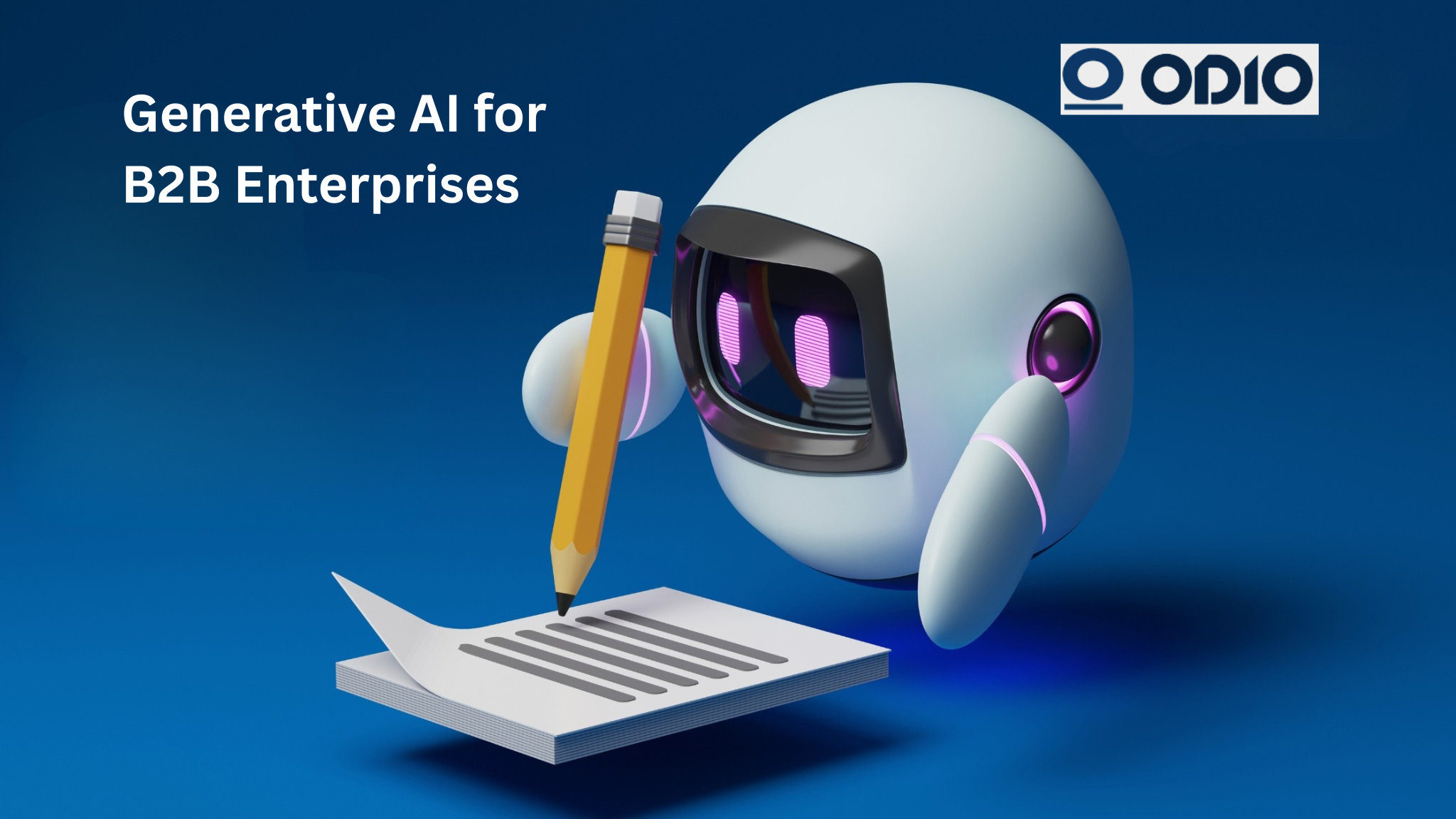
In the rapidly evolving landscape of B2B enterprises, the integration of Generative Artificial Intelligence (Gen AI) has emerged as a transformative force. Gen AI encompasses algorithms capable of generating new content, designs, or data patterns, offering unprecedented opportunities for innovation and efficiency. However, the successful deployment of Gen AI is inextricably linked to the robustness of an organization’s data infrastructure. Without a solid foundation, even the most sophisticated AI models cannot deliver their full potential.
The Imperative of Data Infrastructure in Gen AI Implementation
Data infrastructure refers to the composite framework of data storage, processing capabilities, and management tools that facilitate the collection, storage, and analysis of data. For Gen AI to function effectively, it requires access to vast volumes of high-quality data and the computational power to process this data efficiently. This necessitates a data infrastructure that is not only scalable and secure but also capable of handling complex data workflows.
The critical role of data infrastructure is underscored by the significant investments being made in this domain. According to Gartner, global IT spending is projected to reach $5.26 trillion in 2024, marking a 7.5% increase from the previous year. Notably, the segment for data center systems is expected to experience a 24.1% growth, reaching $293.09 billion . This surge is largely attributed to the escalating demands of AI technologies, including Gen AI, which require substantial computational resources.
Case Studies: Data Infrastructure Empowering Gen AI
Eastman’s Strategic Approach
Eastman, a global specialty materials company, exemplifies the strategic integration of data infrastructure to support Gen AI initiatives. Building upon its existing data and analytics framework, Eastman is developing advanced Gen AI tools. These tools are designed to analyze unstructured data, such as sales call notes, to rapidly identify business opportunities. This targeted approach leverages the company’s robust data infrastructure to enhance digital services and operational efficiency.
Bayer and Microsoft’s Collaborative Effort
In the agricultural sector, Bayer’s collaboration with Microsoft highlights the importance of data infrastructure in deploying Gen AI. By developing specialized AI models fine-tuned with proprietary data, Bayer offers solutions that assist with agronomy and crop protection inquiries. These models are made available on Microsoft’s online model catalog, enabling various stakeholders to license and utilize them. This initiative not only monetizes Bayer’s data assets but also underscores the necessity of robust data infrastructure in delivering industry-specific AI solutions .
The Indian Context: Data Centers as Pillars of AI Growth
India’s data center industry is experiencing rapid growth, driven by increased digitization and data localization trends. As of 2024, India’s data center capacity stands at 950 MW and is expected to nearly double to 1,800 MW by 2026. Despite generating 20% of the global data, India currently holds only a 3% share of global data center capacity, highlighting substantial under-penetration in this sector . This expansion is crucial for supporting the burgeoning demands of Gen AI applications within the country.
Statistical Insights: The Symbiosis of AI and Data Infrastructure
-
AI Adoption Rates: Over 85% of companies in developed economies have integrated some form of AI into their operations as of 2024, reflecting the growing reliance on AI technologies .
-
Big Data Infrastructure Market Growth: The global big data infrastructure market is projected to grow from $171.96 billion in 2023 to $209.04 billion in 2024, at a CAGR of 21.6%. This growth is driven by the proliferation of data sources and the increasing adoption of AI technologies .
-
B2B Marketing and AI: Approximately 85% of organizations agree that businesses using AI will see stronger revenue performance than those that don’t, underscoring the strategic importance of AI in B2B marketing .
Challenges and Strategic Recommendations
While the integration of Gen AI offers substantial benefits, organizations must address several challenges to fully capitalize on its potential:
-
Data Quality and Integration: Ensuring high-quality, clean, and integrated data is paramount. Inconsistent or siloed data can significantly hinder AI performance.
-
Scalability: As AI applications grow, data infrastructure must be scalable to handle increased data loads and processing requirements.
-
Security and Compliance: With stringent data protection regulations, organizations must ensure their data infrastructure complies with legal standards and safeguards sensitive information.
To navigate these challenges, organizations should:
-
Invest in Scalable Solutions: Adopt cloud-based and hybrid data storage solutions that offer flexibility and scalability to accommodate growing data needs.
-
Prioritize Data Governance: Implement robust data governance frameworks to maintain data quality, consistency, and compliance.
-
Enhance Computational Capabilities: Invest in high-performance computing resources to efficiently process complex AI algorithms.
-
Foster Cross-Functional Collaboration: Encourage collaboration between IT and business units to align AI initiatives with organizational goals and ensure seamless integration.
Conclusion
The deployment of Generative AI in B2B enterprises holds transformative potential, offering avenues for innovation, efficiency, and competitive advantage. However, the success of these AI initiatives is fundamentally dependent on the strength and sophistication of the underlying data infrastructure. By prioritizing investments in scalable, secure, and robust data systems, organizations can unlock the full capabilities of Gen AI, driving sustainable growth and value creation in the digital era.

